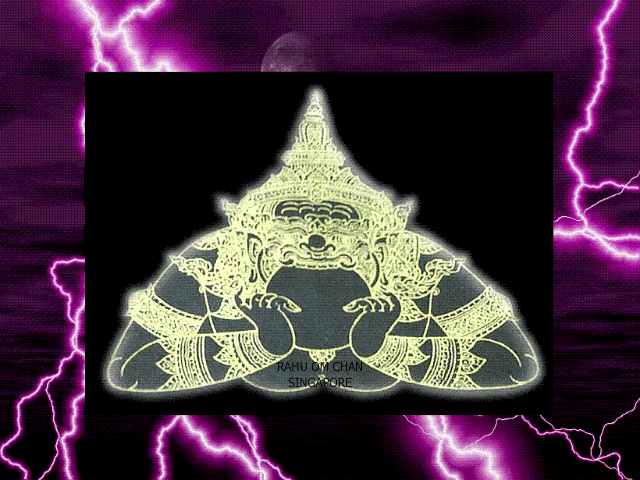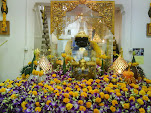Rāhula (b. c. 534BC) was the only son of Siddhartha Gautama (Pāli: Siddhattha Gotama), and Princess Yasodhara. He was born on the same day that Prince Siddhartha Gautama left the palace to seek Enlightenment and later become the Buddha. He was named Rahula by his grandfather because the first word Prince Siddhattha said on hearing about the birth of His son was Rahu, which means obstacle.
Accordingly the child was named Rāhula, meaning "fetter", recognizing that the child could be a tie that bound him to his wife Yasodhara and the comforts of the life of a householder.
In the Dhammapada, the pleasure and joy that a man receives in his wife and children is called a 'soft fetter that ties individuals to life and suffering, not just through eventual loss and separation of loved ones but more deeply and subtly may act as ties to cyclic existence (samsara).
Rāhula was raised by his mother and grandfather, King Suddhodana. When he was seven years old, the Buddha returned to his home city of Kapilavatthu at the request of his father who missed him dearly. On the seventh day of his return, Yasodharā took Rāhula to see his father, the Buddha. She told Rāhula that since his father had renounced the palace life and as he was the next royal prince in line, he should ask his father for his inheritance of crown and treasure for his future sake when his grandfather would no longer rule the kingdom.
After the meal, Rāhula followed the Buddha, saying �� "Give me my inheritance." Nobody tried to stop him, nor did the Buddha prevent him from following Him. He then looked at his father and said, "Lord, even your shadow is pleasing to me."
Reaching the Park of Nigrodha, where the Buddha was staying, the Buddha thought to himself: "He desires his father's inheritance, but it is wrought with troubles. I shall give him the benefit of my spiritual Enlightenment and make him an owner of a transcendental inheritance."
The Buddha called Venerable Sariputta and asked him to ordain little Rāhula who became the first Samanera (novice monk).
Shortly after Rahula's ordination the Buddha taught him the importance of telling the truth. This discourse is known as theRahulovada Sutta. The Buddha placed truth as the highest of all virtues. The seekers of Truth, (those who have as their goal Nibbana) should not break the precept of Truth.
Rāhula subsequently became one among the many arhants through following the Buddha's teachings.
Rahula passed away before the Buddha, Sariputta and Moggallana. The Buddha declared that Rahula was foremost among the monks for his high standard of discipline and obedience. Rahula, who had entered the order at the tender age of seven, was a role model for the younger members of the Noble Order through his obedience and pleasing nature.
Monday, 23 June 2008
Subscribe to:
Post Comments (Atom)



No comments:
Post a Comment